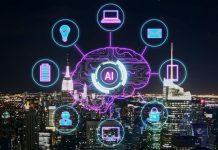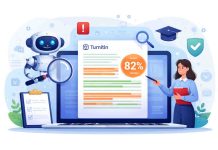The business world is experiencing a transformation as artificial intelligence evolves from a futuristic concept to an important operational tool. At the start of this evolution are AI agents, sophisticated software entities that can perceive, reason, and act individually to achieve specific objectives. AI agent development is rapidly advancing. This enables these systems to take on more complex roles and responsibilities. These intelligent systems are not just automating routine tasks. They are fundamentally reshaping how businesses operate, compete, and innovate in an increasingly digital marketplace.
Innovation has become a competitive advantage in today’s fast-paced business environment. Companies that fail to adapt to technological advancements risk obsolescence. In contrast, those who embrace AI-driven solutions position themselves as industry leaders. The integration of AI agents represents more than technological adoption; it’s a strategic imperative. It determines long-term sustainability and growth potential in an economy where digital transformation isn’t optional but essential for survival.
Key Takeaways
- AI agent development transforms business operations by enabling intelligent systems to learn, adapt, and make decisions autonomously.
- Companies leveraging AI agents gain competitive advantages through improved efficiency, predictive analytics, and personalized marketing strategies.
- AI agents enhance customer support and engagement by providing 24/7 assistance and automating routine tasks.
- The collaboration between AI agents and human workers fosters innovation, allowing employees to focus on creative and strategic activities.
- Adopting AI agent development not only improves decision-making capabilities but also positions businesses for long-term sustainability and growth.
Table of Contents
Understanding AI Agents
AI agents are autonomous software programs designed to perform tasks, make decisions, and interact with their environment without constant human intervention. Unlike traditional software that follows predetermined scripts, these intelligent systems leverage machine learning algorithms, natural language processing, and advanced analytics. They adapt their behavior based on changing circumstances and accumulated experience.
The core capabilities of AI agents extend far beyond simple automation. They possess the ability to learn from data patterns, recognize complex scenarios, and execute sophisticated decision-making processes. These systems can process vast amounts of information simultaneously. They identify trends that human analysts might miss and provide real-time insights that drive strategic business decisions.
Modern businesses deploy many types of AI agents to address specific operational needs. Virtual assistants handle customer inquiries, provide personalized recommendations, and schedule appointments. Process automation bots smoothly perform repetitive tasks across departments, reducing human error and increasing efficiency. Predictive analytics agents analyze market trends and consumer behavior to forecast future opportunities and risks. Each type serves different purposes while contributing to overall organizational effectiveness.
Key Applications of AI Agent Development in Business
Customer Support and Engagement
The customer service landscape has been dramatically transformed by AI agents capable of providing 24/7 support across multiple channels. These intelligent systems handle routine inquiries and resolve common issues. They escalate complex problems to human representatives when necessary. According to IBM’s research, businesses implementing AI-powered customer service solutions report up to a 67% reduction in response times. Furthermore, they see a 30% improvement in customer satisfaction scores. Beyond chat and email, voice interactions are being automated too. Solutions like Quo AI phone calls let AI agents answer and triage inbound calls, route them intelligently, and generate call summaries. They also manage follow-up actions that integrate with existing workflows. This closes the gap between phone conversations and digital systems, improving customer experience while reducing handle times.
Modern AI agents in customer support don’t just respond to queries—they proactively engage customers through personalized interactions, product recommendations, and targeted communications. This proactive approach transforms customer service from a reactive cost center into a revenue-generating asset. It drives customer loyalty and business growth.
Workflow Automation
AI agents help in identifying inefficiencies within business processes and implementing automated solutions that remove bottlenecks. These systems analyse workflow patterns, find repetitive tasks suitable for automation, and execute difficult processes that previously required human intervention.
AI agents are helpful in inventory management and invoice processing; they can simplify operations while reducing operational costs and minimizing human error. The impact of AI agents extends beyond simple task automation. AI agents coordinate with multiple systems. They ensure smooth data flow between departments and maintain consistency across organizational processes. This holistic approach is used to optimize the workflow. As a result, compound efficiency gains are created that significantly impact bottom-line performance.
Predictive Analytics and Decision-Making
The power to forecast market trends and consumer behavior provides businesses with unparalleled competitive advantages. AI agents analyse current market conditions, historical data, and external factors to generate accurate predictions about future business scenarios. These insights enable proactive decision-making rather than reactive responses to market changes.
Trends in AI agent development indicate increasing sophistication in predictive capabilities. Agents are now capable of processing unstructured data from news sources, social media, and market reports to provide complete market intelligence. This evolution transforms strategic planning from guesswork into data-driven science.
Personalized Marketing Strategies
Marketing personalization reaches new heights through AI agents that analyze individual customers’ preferences, journey, and behaviors. They deliver targeted content and product recommendations. Such systems create dynamic customer profiles that evolve with interaction. This ensures marketing messages remain relevant and engaging throughout the customer lifecycle.
The Future of web development increasingly incorporates AI agents. These agents personalize user experiences in real-time, adjusting website content, product displays, and navigation based on individual visitor behavior. This level of personalization drives higher conversion rates and customer engagement metrics.
AI Agents and the Future of Work
Augmenting Human Roles
Rather than replacing human workers, AI agents are transforming job roles by handling routine tasks, allowing employees to focus on creative, strategic, and relationship-building activities. This augmentation approach creates opportunities for skill development and career advancement while improving job satisfaction through more meaningful work assignments.
AI Agent Development for Businesses emphasizes collaboration between human intelligence and artificial intelligence, creating hybrid workflows that leverage the strengths of both. Employees develop new skills in AI management, data interpretation, and strategic thinking while AI agents handle computational and repetitive tasks.
Fostering Collaboration Between Humans and AI
Successful AI implementation requires thoughtful integration strategies that promote collaboration rather than competition between machines and humans. Organizations investing in complete training programs and change management initiatives see higher adoption rates and better outcomes from their AI investments.
The collaboration model is extended beyond individual tasks to strategic planning and innovation processes. AI agents offer data-driven information that helps in human decision-making, while human creativity and intuition guide AI development. This partnership approach maximizes the benefits of both human and artificial intelligence.
Companies seeking to implement these solutions often partner with specialized AI software development companies that give expertise in developing, designing, and deploying AI agents tailored to specific business requirements. These partnerships ensure successful implementation while minimizing risks associated with AI adoption
Conclusion
The integration of AI agents represents a transformation in how businesses operate, compete, and innovate in the digital economy. Organizations that use AI agent development position themselves at the forefront of technological advancement, gaining competitive advantages through improved efficiency, data-driven decision-making capabilities, and enhanced customer experiences.
The road ahead for AI in business innovation promises even greater transformation as these technologies become more sophisticated and accessible. Companies that invest in AI agent capabilities today will shape the future of their industries, while those that hesitate risk falling behind in an AI-driven marketplace. Success in this new paradigm requires strategic planning, proper implementation, and often collaboration with experienced artificial intelligence development services providers who can guide organizations through the complexities of AI adoption. The future belongs to businesses that view AI agents not as replacement technology but as powerful partners in achieving sustainable growth and innovation excellence.











